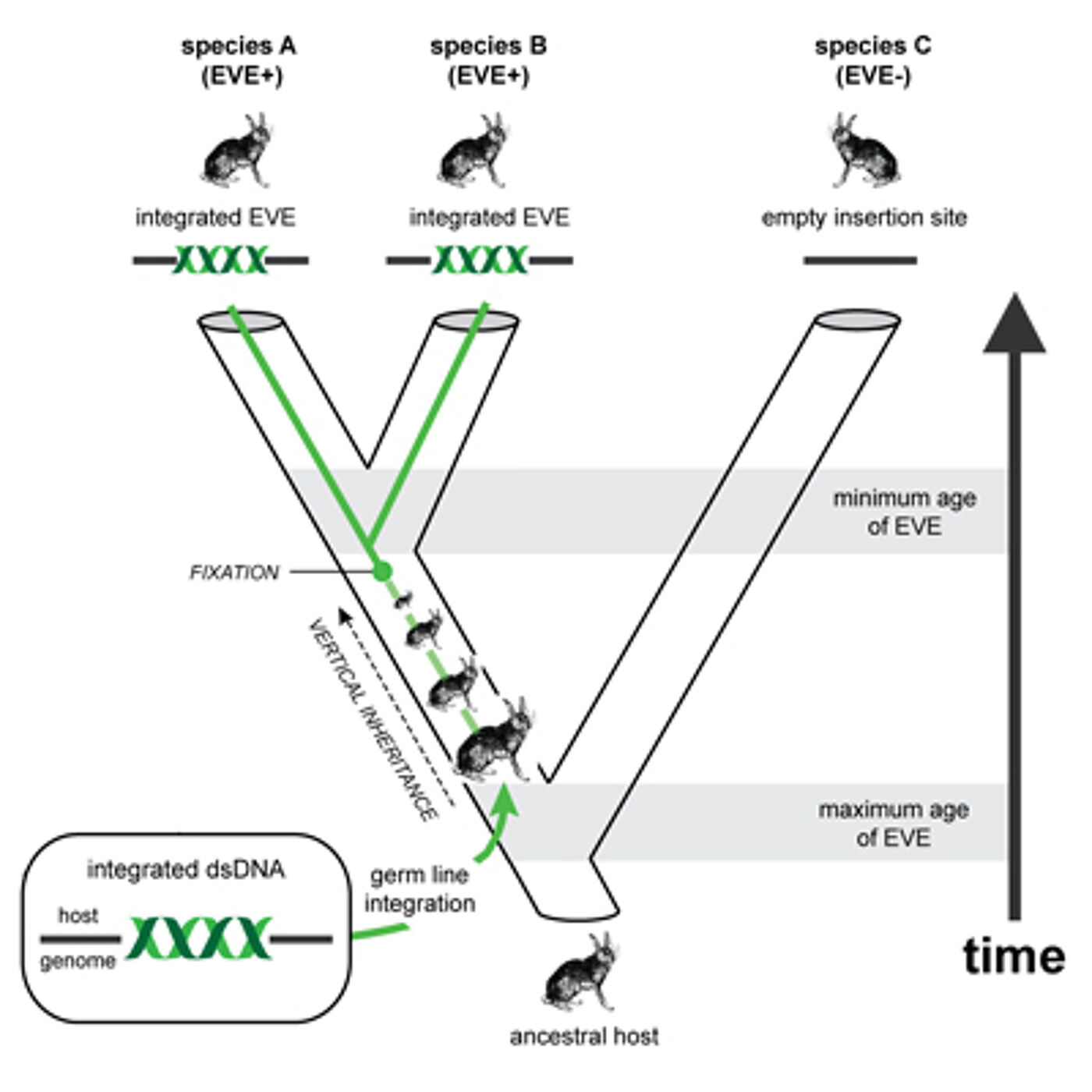Endogenous viral elements
Endogenous viral elements (EVEs) are the heritable, remnants of ancient viruses (‘paleoviruses’) that infected the ancestors of modern species. Although most of these viruses are extinct as free-existing elements, we can study them using the information embedded in genomes. For example, an incredible 8% of the human genome is comprised of DNA sequences derived from ancient retroviruses. Just as the study of fossils has been vital in helping biologists to understand the origin and evolution of modern species, the study of paleoviruses can provide a unique insight into the biology of contemporary viruses.
CVR researchers have developed bioinformatics platforms to screen for these elements, providing data that can be used to establish histories of viral interaction with host genomes, which can underpin the development of strategies for control and monitoring of emerging viruses.
Contact: Rob Gifford
[Top]

EVEs and the genomic fossil record

